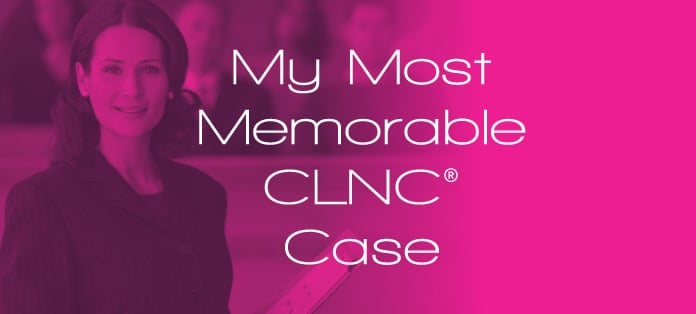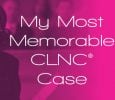My most Memorable CLNC® Case involved a 74-year-old male resident of a long term care facility who sustained multiple falls during a three-year course of stay. I will always remember this case due to the gruesome details and gross negligence.
The Facts
The last day of his life, the 74-year-old male resident was found on the floor in his room lying on his back with shallow breathing and faint pulses. The resident had a DNR (Do Not Resuscitate) status and the facility did not intervene. EMS was called approximately 30 minutes later by the facility. The resident was pronounced dead.
The initial stance from the facility was that the resident got on the floor by himself and possibly had a medical condition which led to his death. The facility also alleged that there were no visible injuries noted at the time of the incident.
The wife of the resident was not notified until the next day after the incident, and she was told that her husband had been found on the floor by a certified nursing assistant. The resident was sent to the funeral home of choice. A few days later the funeral home director alerted the nursing facility, wife and the police of the condition of the corpse. The funeral home director described it as the most unethical thing he had ever seen. He stated that he tried everything to stop the clear-yellow fluid from coming out of the resident’s ears, but nothing he did would stop the leaking. It was later confirmed that the fluid was cerebrospinal fluid which is indicative of a hard blow to the head.
The facility did not document the incident as a fall and did not report the incident to the appropriate state authorities as a result of the resident’s death. In fact, the facility did not document the incident until approximately 28 hours after the incident, and the documentation appeared scripted.
Further investigation confirmed that the documents were tampered with and there were many missing documents. The attorney attempted to depose the nursing assistant and licensed nurse involved in the case, and the nursing assistant initially refused to speak. She later admitted that she was told by the nursing home administrator and director of nursing of the facility what to say and what to write. She disclosed all the details of the incident. She admitted that she was taking the resident to the toilet and his hand slipped from the rail, and she was unable to catch him before he fell to the floor. Per the nursing assistant, the resident hit his head on the floor, and she was very fearful. She stated that she took the resident out of the bathroom and laid him on the floor in his room to see if he had any injuries and to determine if he was stable. She stated that she immediately notified the nurse. The nurse revealed that she did not immediately call 911 because the resident had a DNR status, but she later felt like she needed to cover all bases and have EMS services evaluate the resident to ensure that everything was okay. The resident was noted to be expired at the time of EMS arrival.
The CLNC services I provided included a case screening, request and review of additional medical records, a brief report, deposition questions and requests for production. I also located a testifying MD expert.
Deviations from the Standards of Care
- The nursing facility failed to provide a comprehensive care plan that included updated fall information with interventions to guide the care for the resident.
- The nursing facility failed to educate the facility staff on fall prevention and the resident’s plan of care regarding falls and interventions.
- The nursing facility failed to review the resident’s prior falls and implement interventions to mitigate future falls and injuries.
- The nursing facility failed to provide updated fall risk assessments for the resident’s safety.
- The nursing facility failed to provide behavior and side effect monitoring for the resident’s anxiolytic, antidepressant and anti-psychotic medications which contributed to his falls.
- The nursing facility failed to provide an appropriate diagnosis for the resident’s anti- psychotic medication which increased his risk of falls and death.
- The nursing facility failed to follow the resident’s plan of care requiring a two person assist with transfers resulting in a fall with a significant injury and ultimately death.
- The nursing facility failed to protect the resident from neglect.
- The nursing facility failed to have a proper DNR order in the resident’s medical record at the time of his fall and death.
- The nursing facility failed to appropriately intervene according to their policy and procedure and state guidelines in reference to treatment of a resident with a fall with significant injury and emergency management. DNR does not mean do not treat an incident.
- The nursing facility failed to provide neurological checks for falls with a head injury or when the head was hit for the resident’s safety.
- The nursing facility failed to follow state and federal regulations regarding the care of residents with falls.
- The nursing facility failed to report an incident that met the state guidelines for reporting incidents to the proper authorities.
Major Defense Arguments
- The resident was 74 years old and had many chronic health conditions predisposing him to falls and a decline.
- The resident was known to self-transfer without assistance and was found on the floor by facility staff.
- The facility followed all policies and procedures regarding falls and incident management.
- The resident had no visible injuries when he was found on the floor by facility staff.
- The fluid leaking from the resident’s ears was a result of a medical condition.
Real Lessons Learned
- Identify the attorney’s needs and communicate the CLNC services you offer. An attorney hired me to screen a case. Once the attorney saw the thoroughness of my work product and case analysis he asked me to write multiple reports for his cases, such as brief and moderate reports. I keep an open line of communication with the attorney and the legal assistant, and the professional relationship is smooth and positive. Because of the quality of my work product and accountability, I have been able to offer additional CLNC services, such as deposition questions and location of testifying experts.
- Work with the attorney to create reasonable deadlines for screening, case development and report writing. This will allow you to provide the best work product and contribute significantly to the development of the case. When I initially started as a Certified Legal Nurse Consultant I was very eager and sometimes made deadlines that were extremely tight. Ask the attorney when the statute of limitations expires to manage the most important cases first.
- Identify missing records when initially screening the case. This will assist with a smooth transition and case analysis if the attorney asks you to further develop the case. I learned that all cases are different, but there are similarities. I’ve created templates (e.g., falls, pressure ulcers, urinary tract infection) for long term care cases to ensure that I have all the medical records that are required in the case.
- Remain objective when consulting plaintiff or defense. Stick to the facts. Take a stance and support your professional opinion with the facts. This strategy builds trust with the attorney.
- Become familiar with different Electronic Health Record (EHR) systems and where to locate information. This knowledge will also strengthen your case development.
- Look closely for tampering of medical records during the initial case screening. It can save you a lot of time in the future and allow you to request additional records in a timely manner.
- Print out the reports. Review the printed copy, edit, and then review again for accuracy and presentation. If you proofread only while reviewing the computer screen, there will be errors that are missed.
- Hold the report for a day or two to clear your head and reflect over the work product if possible. I have experienced many aha moments that were beneficial to the case.
The Outcome
The nursing facility offered to settle the case, and a state investigation was initiated due to the non-compliance and tampering. My CLNC services impacted the case in a positive manner, assisted the attorney to further develop the case and ended with a favorable outcome and closure for the plaintiff.
My attorney-client expressed appreciation, “Shequita, I appreciate all your hard work and intense dedication with this case. We want to thank you for everything, and we would not have been able to piece together the facts of this case without you. You helped us achieve success and assisted to give the wife some closure of what really happened to her husband. We are very grateful for your services.”
This case was memorable not only because of the details, but also because it changed the way I do business and affected me both professionally and personally. This case made me realize that individuals will go through extreme measures to cover up actual events and sometimes commit fraud and tampering in the process. This case also gave me more insight into the legal world and provided me the opportunity to offer more variety of CLNC services. This case strengthened my financial status. I was compensated thousands of dollars in revenue, and this case resulted in my receiving additional cases. The plaintiff (the wife of the resident that expired) was able to finally get the closure of what happened to her husband. She was also compensated, and the case generated close to a million dollars. I was extremely excited that I was able to make a difference in the lives of others.
Guest Blogger Profile
 Shequita Moore, MSN, RN, LNFA, CLNC, owner of RPG Legal Nurse Consulting, PLLC in Katy, Texas has more than 14 years’ nursing expertise in long term care, medical-surgical, community nursing, correctional nursing, quality improvement and risk management. Shequita consults on a variety of diverse medical-related cases for both plaintiff and defense attorneys.
Shequita Moore, MSN, RN, LNFA, CLNC, owner of RPG Legal Nurse Consulting, PLLC in Katy, Texas has more than 14 years’ nursing expertise in long term care, medical-surgical, community nursing, correctional nursing, quality improvement and risk management. Shequita consults on a variety of diverse medical-related cases for both plaintiff and defense attorneys.
P.S. Comment here to congratulate Shequita Moore, RN, MSN, LNFA CLNC and to share your most memorable CLNC case.









I am extremely touched by the service you provided in the closure that the wife is able to receive. I am looking to get my own certification as a Certified Legal Nurse Consultant and you are definitely an inspiration. I have worked in several different roles in long-term care facilities and short-term rehab. To see the things that do happen in for blind eyes to be turned to cover these very significant issues up is very upsetting which is why I have chosen to seek out my own certification.
Wow, thank you for putting this case in such a structured and concise format that allows someone like me who is new to relate, learn, and comprehend the steps you took to produce such a quality work product!
Thank you, Shequita!
I have been a CLNC® consultant for 12 years and specialize in ACF cases so this was extremely helpful to me see how you approach long term care cases. We are seeing a sharp increase in fall-related cases at the ACF level of care and I am presenting on the topic, along with one of the attorneys I have been working closely with, at a fall association conference. This was helpful in preparation for that as well.
Thank you again!
Kathy